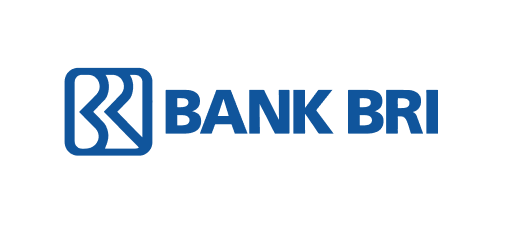"Confluent is a strategic platform for us. With every project we look at, we now think about how we use Confluent to move things around and join things together."
Niko Bielovich
General Manager, Service Management, Judo Bank
Founded in 2016, Judo is Australia’s first challenger bank for small-to-medium enterprises (SMEs), and in November 2021 was the first fully licensed Australian bank to list on the Australian Securities Exchange (ASX) in 25 years. The company’s founders, who are highly experienced bankers, recognized that SME businesses were receiving neither the funding nor the service they needed to grow and prosper. In response, the purpose of Judo Bank is to bring back the craft of relationship banking, and Judo’s relationship bankers focus on spending quality time with SME customers.
Judo Bank’s journey is rapidly evolving as it works on its internal systems to make it easier to observe and manage an increasing amount of data as new customers sign up. As a key part of its evolution, the company began to create a “service fabric” made up of point-to-point integrations that were becoming increasingly hard to deal with in light of the company’s plans to build and launch a new CRM and loan originator system.
With the help of Apache Kafka® and Confluent Cloud, Judo Bank was able to seamlessly integrate its various systems with its data platform to enable use of the new CRM, create the loan originator capabilities, and replace its core banking system with an agile foundation that will serve the company as it digitally transforms and continues to disrupt the banking world.
Technical Solution
From an architectural perspective, Judo Bank had Kafka on its radar from the very beginning.
“We consume managed services at Judo, we don’t own our IT, so we knew we had to figure out how to connect everything together,” said Andreas Piefke, Head of Cloud Service Architecture at Judo Bank.
“This is when the idea of a ‘service fabric’ came up. While we weren’t in a position to operate our own Kafka when we started, we knew that was the end goal—to send, via event streaming, the messages within the enterprise between the different connected managed services.”
In 2020, Judo embarked on a large program to uplift its systems to support the continued growth of the business. “We were basically doing a heart and lung transplant as well as a spinal cord surgery in the bank,” said Niko Bielovich, General Manager of Service Management at Judo Bank. “We were making changes to 15 different systems on the go-live weekend.”
The company implemented its first Confluent release in 2021 in parallel with the introduction of a new CRM and loan origination system.
Judo now operates Confluent Cloud as a private cluster with managed AWS connectors. It has connections between its CRM, loan origination system, and core banking system to bidirectionally exchange data between customers’ loan account creations and loan balances.
A key ingredient to making this environment work was Itoc, an AWS advanced consulting partner and leading cloud managed services provider, which Judo leveraged to facilitate communication and data transfer between their CRM and core banking systems. Judo engaged Itoc to design, develop, and implement the integration solution built using Confluent Cloud and AWS. The solution has become an essential integration component across Judo Bank services, resulting in significantly reduced time to synchronize both systems from hours to mere seconds.
Although in its current implementation the Confluent setup functions more as a message bus than an event streaming platform, Judo plans to leverage ksqlDB more in the future as it moves toward the use of more real-time streaming data. “We’re trying to do as much as we can with ksqlDB because it’s so easy to deploy in a managed environment,” Piefke said.
The Judo team is now creating patterns for managed connectors to stream events (such as DynamoDB) that will serve as the persistence layer for APIs and microservices to increase the use of the managed platform that comes with Confluent Cloud.
“From this point forward I see Confluent and event streaming being part of whatever we do,” Piefke said. “For example, Confluent will play a major part in improving the digital, online banking experience for our customers. It’s also beneficial to have the data platform to tap into for all the events flowing through Confluent as well.”
Business Results
A more agile, consistent, and unified tech stack. “Before Confluent, we had point-to-point integrations,” Piefke said. “All of those bits and pieces were developed by different teams and partners and targeted to a very specific case. Each pipeline had its own implementation. Confluent brings a more consistent approach. Our commissioning and decommissioning activities will be quick with Confluent and we’ll have much better agility moving forward.”
Better data availability and time to market. “Our finance and FinOps teams have faster access to data from creation. Confluent has improved our data availability,” Piefke explained. “While there is some overhead when getting started on publishing events, once the events are in the platform, they’re easy to consume and produce. Confluent improves time to market and we’re expecting shorter release time to production going forward.”
Better support for microservices. “A great benefit of Confluent as an event streaming system is of course that it provides a complete publish-subscribe environment, the ability to replay, and the ability to create a data mesh and have applications tap straight into materialized views,” Piefke said. “So, it’s really a great support for microservices. In the long run, we want to make Confluent the single source of truth for all of our services.”
What’s next
Judo has a pipeline of new and exciting event-streaming projects over the next 12 months. They now have a data platform that uses event streaming for near-real-time data processing and are looking into using Confluent to enable integrations with external partners, either via APIs or sharing a public cluster directly.
Empieza a usar Confluent hoy mismo
Las nuevas altas reciben 400 dólares para gastar en Confluent Cloud durante los primeros 30 días.



